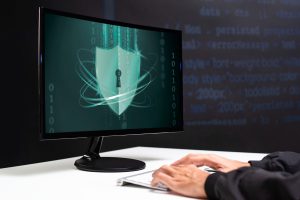GarageBand is a popular digital audio workstation (DAW) from Apple that’s loved for its intuitive interface, built-in loops, virtual instruments, and ease of use—especially for beginners. But since it’s exclusive to macOS and iOS, Windows users looking to produce music or record audio need solid alternatives that offer similar features without the Apple ecosystem.
In 2025, there are several GarageBand alternatives for Windows that provide powerful tools for recording, mixing, editing, and producing music—some of which even surpass GarageBand in terms of depth and flexibility. Whether you’re a budding musician, podcaster, or hobbyist producer, these DAWs will help you create professional-level audio without needing a Mac.
Here’s a look at the best GarageBand alternatives for Windows users in 2025.
1. Cakewalk by BandLab
Cakewalk is one of the most fully-featured DAWs available completely free for Windows users. Previously known as SONAR, Cakewalk was reintroduced by BandLab and includes multi-track recording, MIDI editing, built-in effects, virtual instruments, and advanced mixing tools.
Its interface is a bit more advanced than GarageBand, but once you’re comfortable, it offers more depth and flexibility. For users who want a professional-grade tool with no cost, Cakewalk is hands-down the most complete GarageBand alternative on Windows.
2. LMMS (Linux MultiMedia Studio)
LMMS is an open-source digital audio workstation that runs on Windows, Linux, and macOS. It’s known for its step sequencer, MIDI support, automation, and strong community plugin support. It’s particularly suited to electronic music production.
Although the UI feels a bit dated, LMMS provides a modular workflow and comes pre-loaded with synths and beat-making tools. For GarageBand users transitioning to PC and looking to stay within a free environment, LMMS is a top contender.
3. Mixcraft 9
Mixcraft is a user-friendly DAW for Windows that mirrors GarageBand in its layout and simplicity. It’s ideal for beginners who want to record vocals, arrange loops, mix audio, and apply effects without a steep learning curve.
Mixcraft comes with a wide variety of virtual instruments, audio effects, and royalty-free loops. The paid version offers more flexibility, but even the entry-level tier is packed with useful tools for music and podcast production.
If you’re after a smooth transition from GarageBand’s simplicity to Windows, Mixcraft is one of the closest experiences available.
4. FL Studio
FL Studio is one of the most popular DAWs in the world, widely used in hip-hop, EDM, and pop production. It’s a feature-rich platform known for its pattern-based sequencing, piano roll editor, loop support, and plugin compatibility.
While it has a steeper learning curve than GarageBand, it offers incredible long-term potential. The interface is customizable, and the built-in synths like Sytrus and FLEX are top-tier.
FL Studio is best for users who want to go beyond the basics and commit to full-featured audio production on Windows.
5. Reaper
Reaper is a lightweight, affordable DAW that offers pro-level functionality for a modest one-time fee. It’s known for its efficiency, low system requirements, customization options, and scripting support.
While it doesn’t come with as many built-in loops or instruments as GarageBand, Reaper is extremely flexible. You can add your own plugins, configure the interface, and use it for everything from voiceover work to full-scale music production.
It’s a great alternative for users who want a powerful yet customizable recording and editing environment.
6. SoundBridge
SoundBridge is a free, Windows-compatible DAW designed with simplicity in mind. It offers multitrack recording, mixer views, automation, MIDI support, and VST plugin compatibility. Its modern UI makes it welcoming for first-time producers and casual users.
It also includes a drum machine and supports touchscreen functionality, making it a strong choice for users with hybrid devices or tablets. For those looking for a GarageBand-like platform with less clutter, SoundBridge is a minimalist but powerful option.
7. Magix Music Maker
Magix Music Maker is a loop-based music production tool tailored for beginners and hobbyists. It features drag-and-drop composition, built-in loops, soundpools, software instruments, and even AI music generation for getting started quickly.
While it’s not as flexible as professional DAWs, it’s very similar to GarageBand in terms of user experience. It’s ideal for songwriters, YouTubers, or anyone wanting to put together tracks without learning complex software.
Magix offers both a free version and paid editions with additional sounds and tools, so users can scale up as needed.
GarageBand Alternatives
GarageBand may not be available on Windows, but in 2025, the options for PC users are richer than ever. Whether you’re producing beats, recording vocals, scoring video content, or just experimenting with sound, these alternatives cover a wide range of needs and skill levels.
If you want a fully-featured professional DAW, Cakewalk, FL Studio, and Reaper deliver the most robust experiences. For beginners looking for GarageBand’s ease and layout, Mixcraft, Magix Music Maker, and SoundBridge are ideal. If you prefer open-source tools or electronic-focused workflows, LMMS is a strong choice.
No matter your music-making goals, these GarageBand alternatives for Windows in 2025 will help you build, edit, and mix your sound with creativity and confidence.








